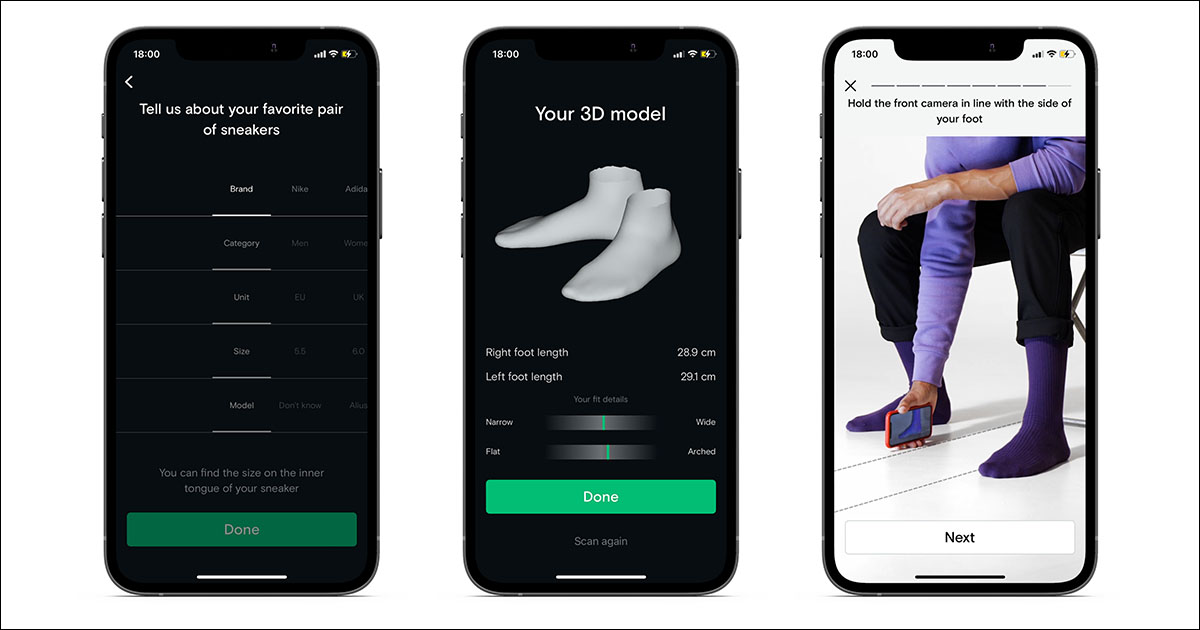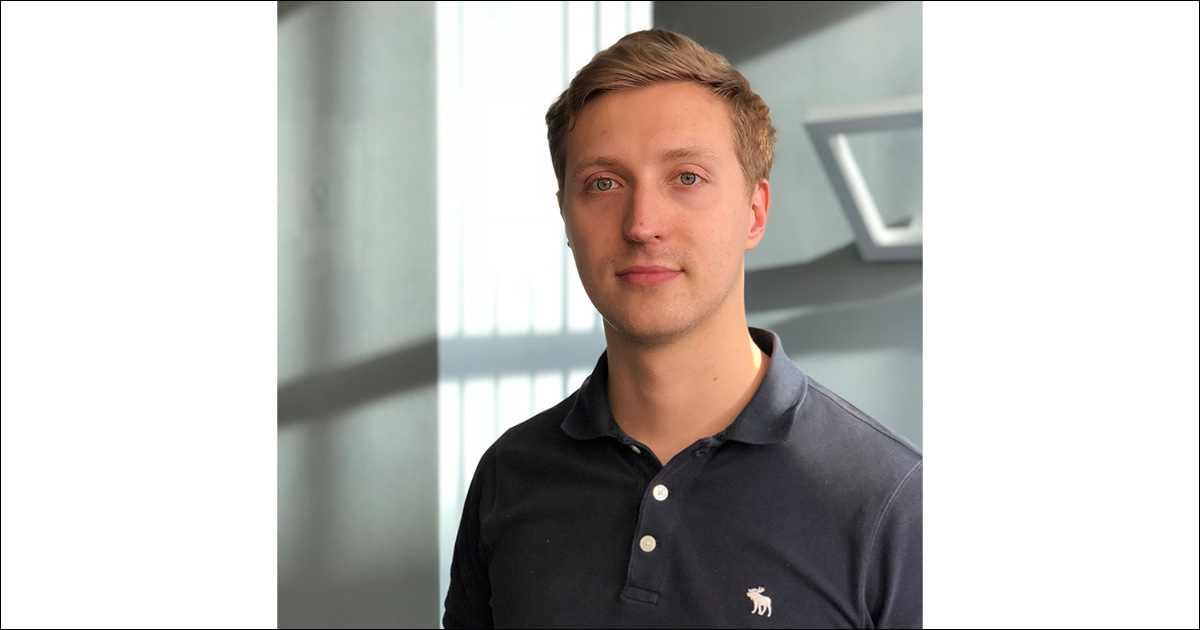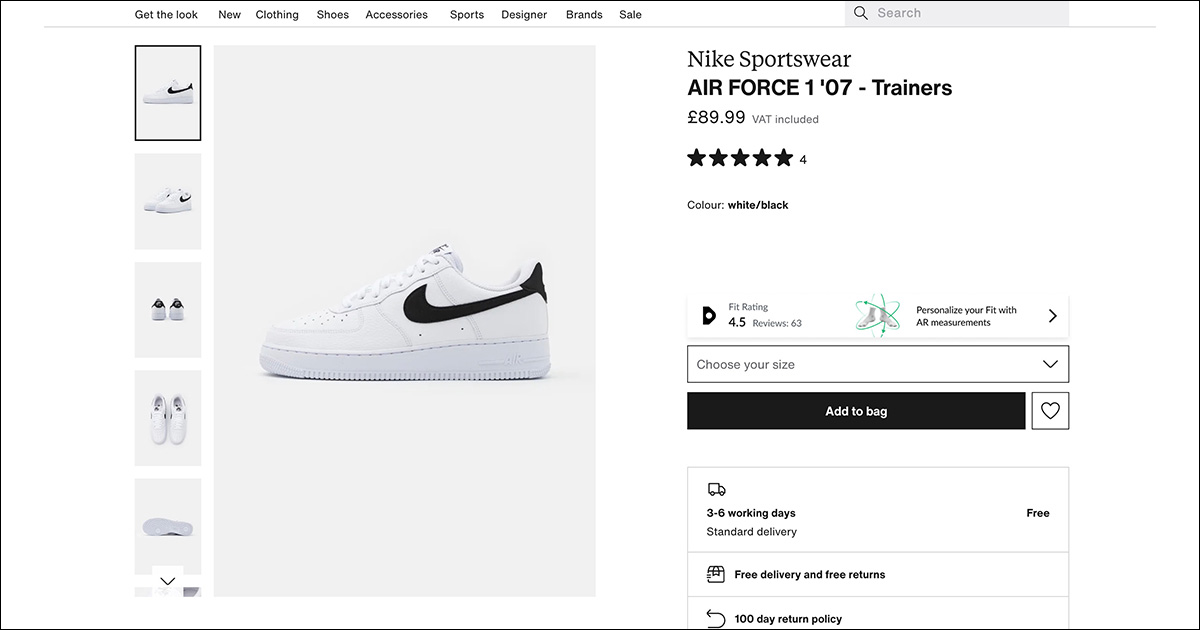Neatsy.ai Profile

Last Updated: By TRUiC Team
Neatsy.ai is on a mission to make standardized sizing obsolete with their AI-powered foot scanner that accurately measures the size and shape of the foot.
Interview With Artem Semjanow
Describe your product or service:
“Neatsy.ai, a US-based startup, offers an innovative solution in ecommerce fashion retail. Nowadays, this is the first company in the world making a 3D foot scanner that uses an iPhone camera for personalized fit and size.
Technology helps take highly precise measurements of a person’s feet, including pronated or supinated feet. The point is that people with orthopedic problems can now order their footwear online with less stress.
Neatsy uses the iPhone’s depth-sensing Face ID selfie camera as a foot scanner to capture 3D models for predicting a comfortable sneaker fit.”
Describe your company values and mission:
“We believe that in the future all the size charts will become obsolete, and only ‘Your Size’ will exist for each customer. We are able to predict how any shoe would feet before you try it on.”
How are you funded? I.e. type of funding, number of funding rounds, total funding amount.
“Two funding series amounting [to] $1.4 million. $400,000 pre-seed was in 2020 from angel investors; $1 million in 2021 [was] from the funds Cabra VC, Flyer One VC and a number of angel investors.”
How big is your team? Tell us a little about them (I.e. co-founders, freelancers, etc.)
“15 people in-house. Three co-founders, of whom Konstantin Semianov is CTO and Anton Lebedev is Chief Data Scientist. The major part of the team consists of AI engineers.”
How did you come up with and validate your startup idea? Tell us the story!
“Both myself and Konstantin, our CTO and co-founder, have flat feet, so it has always been a sort of a personal challenge for us to find proper footwear not only online but offline as well. Usually, it took us a lot of time to try different sneakers in the outlets before finding something more or less comfortable of the right size.
Ordering footwear online turned out to be an even more complicated issue because one never knew whether the ordered sneakers would fit. So we’ve started to study this problem, talking with our friends and acquaintances and contacting ecommerce managers.
We have found out that the problem of improper footwear was quite common for customers worldwide. According to medical statistics, every third person has feet deformities, so one-third of the whole planet faces problems with fitting footwear. Just imagine these figures!
At the same time, the retailers suffer immense losses caused by unnecessary returns … If a person buys a T-shirt [that’s] one size [larger], it can be used for his workout, for example. But if a person buys a pair of sneakers [that’s] one size [larger], he will apparently return it back to the retailer.
These circumstances made us develop a solution helping both customers and ecommerce retailers. Initially, we intended to quickly develop a prototype and an operating system, but in fact, it turned out to be an extremely difficult task in terms of programming. As a result, we have spent one and a half years on research and programming of MVP, and we still continue to develop and improve our model in the part of AI.”
How did you come up with your startup's name? Did you have other names you considered?
“The initial idea was to take [the] name ‘Fitsy.’ However, while talking with people from different ecommerce companies, we have discovered that people [may] confuse this name with the names of other companies. This fact can be easily explained since the word ‘to fit’ is probably first associated with the sphere of [wellness] so people commonly use it.
Thus we decided to use an association of the next level. The adjective “neat” is connected with something accurate and that fully reflects our approach, because we measure feet with the highest accuracy currently possible. We try to make things in a neat way, we remove the mess by finding the right fit and do[ing] it a neat way.
We wanted to be dubbed as Neat.ai but faced difficulties [registering] this trademark, because the legal procedure to own a commonly used word like ‘neat’ is too complicated. So we decided to use this common word by slightly changing it, turning the name ‘Neat.ai’ into ‘Neatsy.ai.’ Our logo resembles a piece of tape without metric lines and reflects our idea of measuring without tape.”
Did you always want to start your own business? What made you want to become an entrepreneur?
“During my study at the university, I launched my first startup jointly with friends, so after graduation, I’ve [been] a co-founder of a small consultancy company, tutoring students [in] math and IT basics. Later there were some more crazy attempts to launch other businesses. They all resulted in my first successful company, DPL Lab, which specialized in machine learning. The company was acquired by Prisma Labs, where I continued as Chief RnD officer, and all my team also switched to Prisma Labs.
Having gained experience of work in a technological startup, I decided to launch my own one. There were moments in my life when I thought that it would be better to continue as a team lead in a big software company instead of doing a startup. But I realize that work takes a significant part of life and it’s very important to do what you like and what really drives you.”
Did you encounter any roadblocks when launching your startup? If so, what were they and what did you do to solve them?
“Doing technological business is an extremely challenging thing, I would say. As we are trying to make technology that has never been made before, we realize all the opportunities we receive but also realize all the challenges we face.
We thought about [a] quick start, but it took us 1.5 years to develop an MVP. And in fact, we conduct scientific research on a daily basis.
Another difficulty is [the] necessity to do a lot of educational work. Since we are producing a brand new technology, we have to explain many details to both investors and customers. People often are skeptical because they do not understand how the technology works and what output it gives.”
Who is your target market? How did you establish the right market for your startup?
“The initial idea was to develop a shoe marketplace for B2C clients, when a client scans his foot in the app, receives recommendations on the sneakers models and continues purchase on a brand's site. The main hypothesis was that users would be willing to buy more footwear with our app and brands would pay us for leads. But the unit economics of this business model did not add up.
Then we switched to B2B customers like online clothing and footwear marketplaces [as well as] sneaker brands, to whom we offered to embed our solution for $0.20 per user for personalized fit AI recommendations. It has turned out that finding the right sneaker fit was a big and pricey ‘headache’ for retailers themselves as the return of goods was often more expensive than the delivery itself. We are now implementing several paid pilots with major ecommerce retailers and brands.”
What's your marketing strategy?
“We target leading ecommerce and footwear brands and producers in the US and Europe. Initially, we offer potential clients to install our free widget on their site to measure consumers' interest. Once they see the effect of it, we bill for a number of clients using our AR measurement to make a purchase and scale the contract accordingly.”
How did you acquire your first 100 customers?
“We launched the pilots with a few sneakers outlets offering their customers to use our app while trying on sneakers. So we came with our first 140 users, who tested our app and tried on sneakers in stores. Then we installed our SDK into their app and got another 50,000 users for the A/B test. We have noticed that people who received personalized recommendations have shown a 48% higher conversion rate into a purchase.”
What are the key customer metrics / unit economics / KPIs you pay attention to to monitor the health of your business?
“The first is the number of users that use our personalized recommendations on our clients' site.
The second is supported SKU coverage.
The last is the number of reviews per sneaker style.”
What's your favorite startup book and podcast?
“‘Harry Potter and the Methods of Rationality’ by Eliezer Yudkowsky. The book may not seem like a startup book, but it really teaches you a scientific method of studying the world.”
What is a song or artist that you listen to for motivation?
“Mid-2000s emo and pop punk.”
Is there a tool, app, or resource that you swear by to help run your startup?
“Everyday tools like Trello and Notion. I am also a big fan of QBO and BREX cause it saves my time on things that I don't like. And I am also a Jedi Master of Slack and Figma.”
What is something that surprised you about entrepreneurship?
“You don't need to worry about the decisions you take because you will ultimately do everything in a different way.”
How do you achieve work/life balance as a founder?
“I've decided not to work on weekends, not to respond to anyone. I reserve a special place in hell for those whom I didn't respond to on weekdays [who] decide to ping me on Saturday.”
What is a strategy you use to stay productive and focused?
“Plan 10 things to do for the day, make five, and say to yourself that you're cool.”
Did you have to develop any habits that helped lead you to success? If so, what are they?
“Follow-up emails. Write down the minutes and send them after the meeting. Another habit is to schedule all the meetings in the calendar. If it is not there, it does not exist.”
What was your first job and what did it teach you?
“I was working as a tutor in the university. That was the job that taught me to be patient with people, to understand their needs and priorities. Later I used to work as a recruiter in the agency, where I learned that the hardest thing is to find the right people. People are the most precious and valuable asset of any business. But at the same time, if I put the effort, I would always eventually find the one.”
Recommended:
- Keep up with more startup companies by visiting our list of the top startups to watch.
- Hear startup stories from real founders on the Startup Savants podcast.
- Form your own startup by reading our review of the best online incorporation services.
Tell Us Your Startup Story
Are you a startup founder and want to share your entrepreneurial journey with our readers? Click below to contact us today!
More on Neatsy.ai

Your iPhone Is Now an AI-Powered Foot Scanner With Neatsy
Artem Semjanow, the founder of Neatsy, has created an app that scans and analyzes users' feet to identify their true shoe size.

Founder of AI Startup Neatsy Shares Their Top Insights
Artem Semjanow, founder of AI startup Neatsy, shared valuable insights during our interview that will inspire and motivate aspiring entrepreneurs.

Here’s How You Can Support AI Startup Neatsy
We asked Artem Semjanow, founder of Neatsy.ai, to share the most impactful ways to support their startup, and this is what they had to say.



